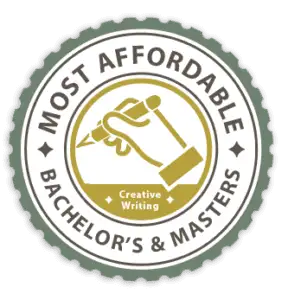
Students who study English—literature and writing—are often drawn to creative and logical thinking, to reading significant texts, to improving their communication skills, and to understanding cultures, society, and history.
In addition to the basic university core and departmental humanities courses, all English majors take a variety of English classes, including writing classes like Introduction to English Studies, Advanced Grammar, and Advanced Composition.
Building on the Humanities core courses and foundational classes in English, our students can choose an emphasis in literature, creative writing, professional writing, or journalism.
- Literature – This emphasis requires a variety of American, English, and world literature courses along with several optional “choice” classes.
- Creative Writing – Students will focus on classes that emphasize developing writing skills in the areas of poetry and fiction in addition to optional “choice” classes.
- Professional Writing – This is a good option for students who would like a career writing for industry; in addition to basic writing classes, it requires courses from digital media arts and communication since writing for businesses requires media experience.
- Journalism – Students may choose this emphasis which, in addition to writing and other English classes, includes sports and mews writing classes from the Communication department. A minor in Law and Government or History is recommended.
Creative Writing Edu, a website owned and operated by Wiley University Services, has recently placed LCU's Creative Writing program as one of only three private schools in Texas in their listing of “the most affordable Creative Writing programs." They listed student opportunities to study abroad, student-centered learning environment, award-winning faculty, low student-to-faculty ratio, opportunities to participate in undergraduate research and internships, the Creative Writing Club, and The Chapbook as reasons for LCU's inclusion on this list.
The Value of an English Education:
An education in English helps develop creative and logical thinking, communication skills, and cultural intelligence, as well as the writing and reading skills so desired by many employers.
Nina Stoller-Lindsey of Forbes writes that an English degree offers “a well-rounded education that enhances students’ critical thinking skills, theoretically readying students for a fairly wide range of jobs.”
What a Degree in English Prepares Graduates for:
While most people understand that an English major is a difficult and intensive program of study, there is also an awareness that English is not a directly career-focused degree. Nonetheless, an English major prepares student for lifelong learning and a wide range of jobs.
Job Market for English Majors:
According to the U.S. Bureau of Labor Statistics, the future job market for English language and literature degree holders varies between average and robust growth, with most gains in the areas of social media managers, marketing, and technical writing. In 2023, the median annual salary for writers and authors was $73,150, while technical writing specialists received a median annual salary of $79,960. Elementary and secondary education jobs, the most common professions for English language and literature degree holders, are projected to trend upward and grow by nearly 4% in the next ten years.
What do English Majors Bring to the Job Market?
- Constructing an argument and defending it well
- Proofreading and editing texts
- Respecting differing points of view
- Communicating both in writing and in oral presentations
Careers in English:
- Publishing and writing
- Journalism
- Technical Writing
- Creative Writing
- Social Media Managers
- Grant Writing
- Fundraising and Development
- Teaching
- Marketing and Public Relations
- Computer Technology/IT
- Library Science
- Web Design
- Preparation for Law School
- Preparation for Graduate School in Literature or Writing
Opportunities as an English Major:
The University Writing Center (UWC) offers free, individualized, expert help with writing for an LCU undergraduate or graduate student. These sessions might include deciding on a topic, clarifying and organizing ideas, helping with research, drafting or revising, or citing sources correctly. Many English majors, along with other capable writers, have the opportunity to work as paid consultants in the UWC, located in the LCU Library.
Many English majors spend a semester within their junior or senior year in Washington DC as part of the internship program. We have found that non-profits are most interested in interns who have strong writing skills, which makes the English major extremely beneficial. In addition, some students have gone on to graduate school or careers in the Washington DC area due to their participation in the internship program.
Other internship opportunities may be found locally in Lubbock or even on campus. For instance, students often intern with the Brian S. Donaghey center for Boethian Studies, located on the north side of the LCU Library and directed by Dr. Kenneth Hawley, internationally known Boethius scholar. Other students have found internships working with faculty or staff on research and writing projects.
Students may choose to spend a semester in Avila, Spain, as part of the LCU Study Abroad program. Not only do English professors frequently teach classes as part of LCU Study Abroad, but other classes offered will easily fit in to the English major degree plan.
Other fun learning experiences may come from the following events and opportunities:
- The Annual Writing Carnival and 24-hour Reading Event
- School-Wide Writing Contests
- The Creative Writing Club
- The ChapBook editorial board and/or contribution
- The Student Development board
Scholarships: Participation in Undergraduate academic research is highly encouraged for all English majors:
LCU Scholars Colloquium
- Cross-campus, multidisciplinary event
NCUR Conference for Undergraduate Research
- Highly competitive conference hosted by various universities
Visit the University Catalog here to view the Bachelor of Arts in English degree and each of its emphases.
